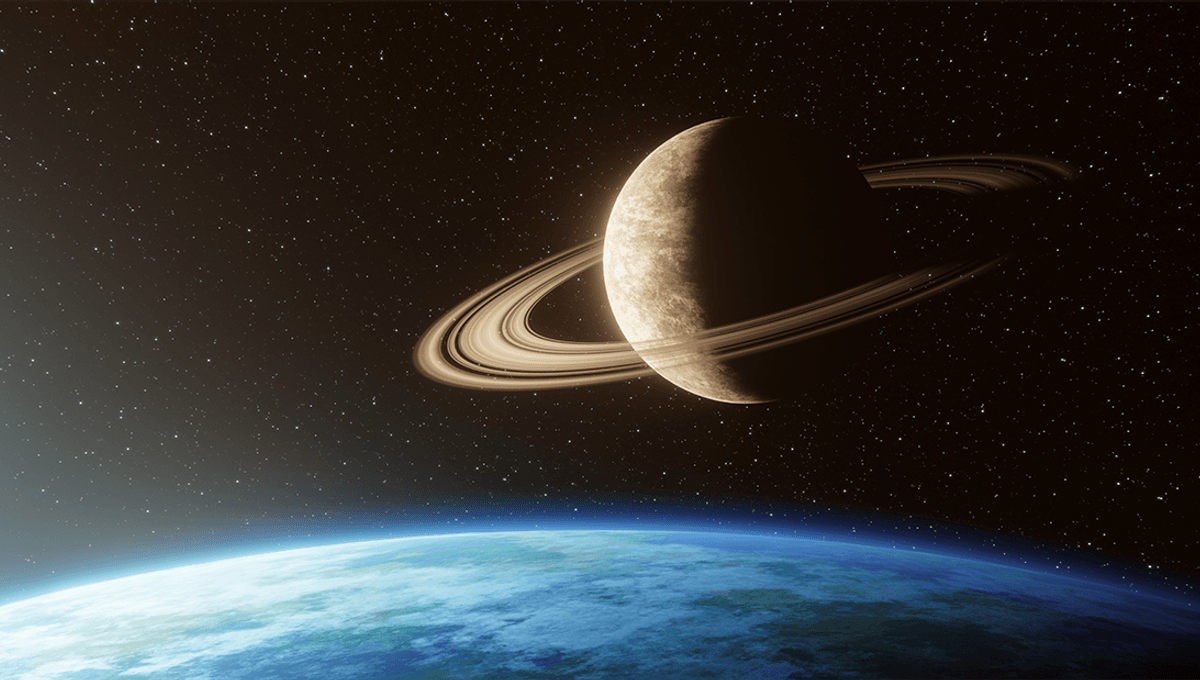
Every now and then, a fact gets passed around the internet that gas giant Saturn would float if you placed it in water. But is it true? For that, we need to know a little about buoyancy, and a little about gas giants.
Buoyancy is an upward force in a fluid (any flowing substance, including air) exerted on all bodies within it. The force comes from the pressure within the fluid being greater the further down in the fluid you go. The pressure on the bottom of an object within the fluid is higher than at its top, causing the upward force. The Archimedes principle states that a body submerged or partially submerged in a fluid is acted on by the buoyant force in a magnitude equal to the weight of the fluid it displaces.
If the buoyant force of a fluid is greater than the downward force (its mass times the gravitational field strength) of an object placed within it, the object will float. But objects that are more dense than water (at the surface) will sink until the forces are equalized.
The planets of our Solar System are, as you might expect, generally denser than water. All four rocky planets orbiting the Sun contain a heavy iron core, even if you ignore that they are also made of rock.
But the gas giants? That gets a little more interesting. Both Jupiter and Saturn are mostly composed of hydrogen and helium, of “lighter than air” fame. In fact, despite being 318 times the mass of the Earth, the overall average density of Jupiter is lower than that of Earth. Jupiter’s density is around 1.33 grams per cubic centimeter (83 pounds per cubic foot), while Earth’s is around 5.5 g/cm3 (343 lb/ft3).
While that’s pretty sparse, it is not enough to allow the planet to float on water. But Saturn is sparser still.
“Like Jupiter, Saturn is made mostly of hydrogen and helium. At Saturn’s center is a dense core of metals like iron and nickel surrounded by rocky material and other compounds solidified by intense pressure and heat,” NASA explains. “It is enveloped by liquid metallic hydrogen inside a layer of liquid hydrogen – similar to Jupiter’s core but considerably smaller.”
Saturn’s average density is around 0.6871 g/cm3 (42.87 lb/ft3). The density of water varies with temperature and pressure, but at atmospheric pressure it is around 1 g/cm3.
“It’s hard to imagine, but Saturn is the only planet in our Solar System with an average density that is less than water,” NASA added. “The giant gas planet could float in a bathtub if such a colossal thing existed.”
While NASA is the authority on such matters, this shouldn’t be taken too literally. While it’s true that the average density of Saturn is below that of water, that doesn’t mean we could construct a gargantuan bathtub and then float it around like a celestial rubber duck, and they are likely just highlighting how sparse Saturn is.
As explained by Wired’s Rhett Allain, associate professor of physics at Southeastern Louisiana University, if a body of water was large enough to support Saturn, the pressure at the bottom would be too high for liquid water to exist, and in fact, there would be enough pressure down there to begin nuclear fusion.
So it’s pretty impractical, but is it impossible? Also yes. While the average density of Saturn is lower than that of water, it is not a rigid structure like a boat. The helium and hydrogen that primarily make up Saturn are held there through gravity and supported by Saturn’s core. While that’s enough to keep Saturn looking coherent for billions of years, were you to try to float it in a giant bathtub, the hydrogen and helium would float on top, becoming the bathtub’s new atmosphere. But Saturn’s core – denser than water and the new atmosphere of bathtub planet – would sink down into the water world to its center.
In short, while Saturn is less dense than Earth and could float on water if it had a rigid surface keeping it together, in reality, the planet would be pulled apart as it sank into the water world, even if you could find a body of water large enough to attempt your evil experiment.
Source Link: Is NASA's Claim That Saturn Could Float On Water Really True?